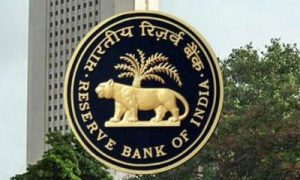The government also plans to sign free trade agreements with other nations to secure the competitiveness of India’s textile exports.
The Cabinet has approved a Production-linked Incentive (PLI) scheme for man-made fibers and technical textiles sectors.
To run over the next five years, the scheme is expected to bring in 7.5 lakh new jobs and help Indian producers switch from Cotton textiles to these new products which account for two-thirds of global textile production, Textile Minister Piyush Goyal said on 8 September.
The scheme aims to boost the production of these products and regain India’s position as one of the largest sources of apparels and textiles globally. While India remains one of the largest producers globally, its share of global production and exports have constantly eroded over the past decade as smaller nations like Bangladesh and Thailand have raced ahead.
Into the details
The new PLI proposes to incentivise eligible manufacturers by paying between 3 percent and 11 percent incentive on incremental production. It has two categories of investments above Rs. 100 crore and Rs. 300 crore. As a result of these, fresh investment of more than Rs.19,000 crore and cumulative turnover of over Rs.3 lakh crore is expected to be achieved, the government has said.
“Companies which will set up factories in aspirational districts and Tier-III and Tier-IV will be given priority while allocating incentives. The number of jobs created will also be taken into consideration,” Goyal said.
Gujarat, Uttar Pradesh, Maharashtra, Punjab, Tamil Nadu, Andhra Pradesh, Telangana, and Odisha stand to be the front-running states which are expected to benefit from this, he added. However, he asked other states to also bring out their schemes for textiles and add to this.
The government wants the scheme to cause a shift from traditional textiles to newer more globally sought-after products. Most apparel manufacturing is increasingly becoming dependent on MMF. The new scheme is expected to help India quickly catch up with competing economies by switching to products and production methods more conducive to consumer tastes and corporate demands.
The share of MMF in India’s traditional textile export basket remains low with only a-fifth of all textile products are MMF while the rest are cotton. Interestingly, globally the trend is the opposite.
Industry lauds move
The scheme has generated widescale praise from domestic industry. “The global MMF market is about $ 200 billion and India should aim to get 10 percent of the market in the next 5 years. The MMF apparels currently account for 20 percent of our overall apparel exports and we should increase its share to 50 percent in next 5 years, said Federation of Indian Export Organisations (FIEO) President A Sakthivel.
Kulin Lalbhai, Co-Chairman of the National Committee on Textiles and Apparel at the Confederation of Indian Industry lauded the timing of the scheme as the industry is recovering from the economic impact of covid. “The MMF and technical textile segments are large and very strategic from an export perspective and the PLI scheme will help companies achieve scale and efficiency in these segments,” he added.”We are confident that incentivizing indigenous manufacturers to increase their production capabilities will have a ripple effect that will benefit all stakeholders across the value chain, by driving greater domestic consumption and international trade as well as boost employment generation,” Dipali Goenka, Jt MD & CEO, Welspun India, said.





































